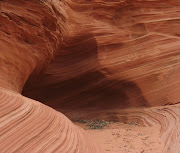
 Canada & the lower 48 plus Alaska are in for some eXtreme epic weather that makes tourism attractions and chambers of commerce shudder in horror. Parched earth will get drier, floods will wet up 1,000 year records and storms shall become scarier Mother Nature thunderbolts and twisters legends. Earth has gas and exhaling will become weather tales of woe and withering. Crop failures and fresh water impurities would be likely results as populations continue to climb, use more power and throw carbon emissions into the air making for weather miseries. (Photo lightning NASA)
Canada & the lower 48 plus Alaska are in for some eXtreme epic weather that makes tourism attractions and chambers of commerce shudder in horror. Parched earth will get drier, floods will wet up 1,000 year records and storms shall become scarier Mother Nature thunderbolts and twisters legends. Earth has gas and exhaling will become weather tales of woe and withering. Crop failures and fresh water impurities would be likely results as populations continue to climb, use more power and throw carbon emissions into the air making for weather miseries. (Photo lightning NASA)


 bridge & road erosion and overdevelopment in sensitive ecological areas that afforded protection once upon a time. Levees are a topic Bush & crew ignored prior to Katrina, after California governor Arnold Schwarzenegger sought federal assistance and now after the 1993 floods where a 1994 report detailed the looming disaster with shorter annual durations between cyclical downpours. Three billion bucks a week goes just to fuel the Iraq debacle where another ecological disaster is unfolding courtesy of Worst. president.ever & his neocon minions of menace. US Climate Change Science Program released the gloomy 162 page study showing North America will reap the whirlwind of wild weather as a potential result of climate change and global warming.
bridge & road erosion and overdevelopment in sensitive ecological areas that afforded protection once upon a time. Levees are a topic Bush & crew ignored prior to Katrina, after California governor Arnold Schwarzenegger sought federal assistance and now after the 1993 floods where a 1994 report detailed the looming disaster with shorter annual durations between cyclical downpours. Three billion bucks a week goes just to fuel the Iraq debacle where another ecological disaster is unfolding courtesy of Worst. president.ever & his neocon minions of menace. US Climate Change Science Program released the gloomy 162 page study showing North America will reap the whirlwind of wild weather as a potential result of climate change and global warming.It is going to get hot, Hades hot and humid. For those with sensitive respiratory systems, the young and the elderly, will suffer the most, especially if they are poor and without resources or cooling stations. Southwestern US, already suffering a shortage of water, has a good possibility ofThe economic and physical ramifications of the extreme weather events forecast in the report can already be grasped by the flooding in the Midwest, said Richard Moss, vice president for climate change at the World Wildlife Fund.
Moss, who previously headed the CCSP coordination office,
said, "the longer we delay on cutting emissions, the higher the bill will be from these impacts."
The report said higher temperatures from global warming will also increase the likelihood of severe droughts in the U.S. Southwest, parts of Mexico, and the Caribbean. Heat waves are more likely "over most land areas, most pronounced over the northwestern two thirds of North America," it said.
Another government report issued on Friday and led by the Environmental Protection Agency, said some of the effects of climate change could be mitigated by methods like restoring vegetation along streams, increasing the resilience of ecosystems. (Reuters photo Marine One touring Iowa City 2008)
 imitating a blazing desert filled with parched plants and people that need but one lightening strike to flame away all in its path while elsewhere flooding being experienced now will return like a bad nightmare destroying prized farmland and washing away more homes. It was 15 years since the Mississippi flood plain experience flood stage records and this year the records are being beaten by several feet or meters, not mere inches. Funding was denied by a republican controlled congress to implement the plans to build catch basins that would have mitigated the current disaster. Doomed to repeat it again seems to be the consistent Bush mantra, especially after a 2004 prior scenario planning event for New Orleans predicted what would happen and it did in 2005.
imitating a blazing desert filled with parched plants and people that need but one lightening strike to flame away all in its path while elsewhere flooding being experienced now will return like a bad nightmare destroying prized farmland and washing away more homes. It was 15 years since the Mississippi flood plain experience flood stage records and this year the records are being beaten by several feet or meters, not mere inches. Funding was denied by a republican controlled congress to implement the plans to build catch basins that would have mitigated the current disaster. Doomed to repeat it again seems to be the consistent Bush mantra, especially after a 2004 prior scenario planning event for New Orleans predicted what would happen and it did in 2005.Floods are a witches brew of raw sewage, animal waste, chemicals with a variety of items floating about including carcasses. Underneath all that water now is a goodly portion of the nation's food supply. Imagine the cost of food and fuelBut the committee chairman, Gerald E. Galloway Jr., a former brigadier general with the Corps of Engineers, said in an interview that few broad changes were made once the floodwaters of 1993 receded and were forgotten.
“We told them there were going to be more floods like this,” said Dr. Galloway, now an
engineering professor at the University of Maryland. “Everybody likes to go out and shake hands on the levee now and offer sandbags, but that’s not helpful. This shouldn’t have happened in the first place.”
While the committee’s recommendations certainly would not have prevented the Mississippi and its tributaries from rising to catastrophic levels, Dr. Galloway said they could have lessened the sense of helplessness and limited some of the damage.
Among the committee suggestions that Dr. Galloway said were largely overlooked: a more systematic approach to what the 1994 report described as “a loose aggregation of federal, local and individual levees and reservoirs” on these Midwestern rivers in which, that report said, “many levees are poorly sited and will fail again in the future.”
 when the coming floods tops this latest disaster the heartland is living through. This week, there are at least 20 breached levees so far inundating Iowa, Illinois and Missouri farmland and urban areas alike. The report is preparing people to expect more of the same conditions not less. That puts a real premium on investigating US presidential candidate plans for infrastructure and how they expect to pay for the necessary 2008 repairs while shoring up for the coming deluges and droughts. Too much water in one region and nowhere near enough elsewhere is going to exacerbate intrastate squabbling over water, with get rich developers screaming to continue at the same pace with more ecosystems losing. Something has to give. The coming legal battles will need a SCOTUS that understands the prevailing conditions. Our super nice Canadian neighbors have a stake in the Great Lakes and will not tolerate US domination.
when the coming floods tops this latest disaster the heartland is living through. This week, there are at least 20 breached levees so far inundating Iowa, Illinois and Missouri farmland and urban areas alike. The report is preparing people to expect more of the same conditions not less. That puts a real premium on investigating US presidential candidate plans for infrastructure and how they expect to pay for the necessary 2008 repairs while shoring up for the coming deluges and droughts. Too much water in one region and nowhere near enough elsewhere is going to exacerbate intrastate squabbling over water, with get rich developers screaming to continue at the same pace with more ecosystems losing. Something has to give. The coming legal battles will need a SCOTUS that understands the prevailing conditions. Our super nice Canadian neighbors have a stake in the Great Lakes and will not tolerate US domination.
Completely frightening book filled with humankind's self absorption on climate change BEFORE the NOAA study appeared in the news. Field Notes From A Catastrophe: Man, Nature and Climate Change is now available in paperback from Elizabeth Kolbert and it had a sense of urgency more than a year ago.










No comments:
Post a Comment